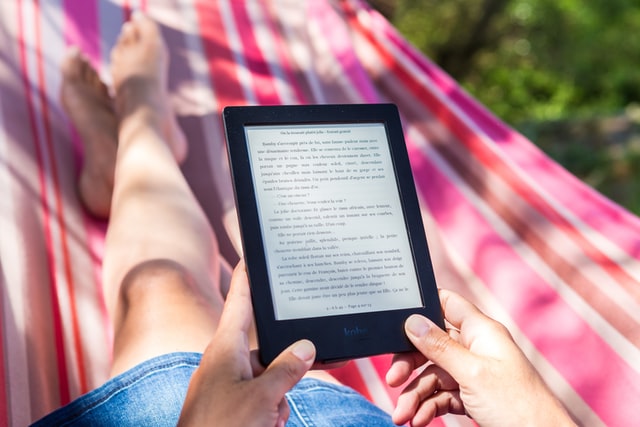
We are grateful to Authors Alliance’s research assistant, Derek Chipman, for authoring this post.
The legal battle about Maryland’s e-book lending law continued January 28th as the Association of American Publishers (AAP) replied to the state of Maryland’s motion to dismiss its suit. Authors Alliance has covered Maryland’s e-book lending law and the ensuing litigation previously, but to recap: the law would require publishers who license e-books to consumers in Maryland to also offer a license on “reasonable terms” to public libraries in the state. This law and other proposed state laws like it were motivated in part by the fact that libraries are often charged much higher prices than consumers for digital literary products. Before the Maryland law took effect on January 1st of this year, the AAP promptly filed suit to block it. In today’ blog post, we will summarize the latest filings in this lawsuit, which Authors Alliance has been following closely.
In its lawsuit, the AAP seeks a declaratory judgement that Maryland’s e-book lending law is preempted by federal copyright law as well as a temporary and permanent injunction to stop its enforcement. See our recent blog post for a thorough explanation and analysis of the AAP’s preemption argument. AAP’s most recent filing is a reply is to a motion filed by the State of Maryland on January 14th that sought to have the lawsuit dismissed.
Maryland’s motion to dismiss mainly focuses on framing the bill as a “modest” consumer protection law that does not conflict with federal copyright law. The motion to dismiss focuses on Maryland’s legitimate power to regulate market practices within the state and disagrees with the AAP’s argument that the law functions as a “compulsory license” that runs afoul of the right granted by the federal government to copyright holders. It argues that the bill only requires publishers to “offer to license” e-books to Maryland libraries and does not give libraries any right to dictate terms. Maryland seeks to establish that there is no conflict or inconsistency between copyright law and its e-book lending bill, stating that the bill only seeks to prevent some publishers from “capitalizing on the digital revolution at libraries’ expense.” Maryland further states the bill is consistent with the Copyright Act, working to ensure “that publishers and libraries work together toward mutually acceptable license [terms].” If the judge in the case grants Maryland’s motion, the case and its bid for an injunction would be dismissed, though the AAP could appeal such a ruling.
The AAP’s reply on the other hand, doubles down on its preemption argument and argues that the court should not grant the motion to dismiss and should instead temporarily block the bill from taking effect. The AAP argues that the e-book marketplace is working fine and what Maryland characterizes as “exploitative practices” are standard practices developed over decades by those exercising their exclusive rights under copyright law. The AAP argues that Maryland is attempting to “get more for less” and that the law functions as a compulsory license that infringes on a rightsholder’s right to refrain from entering into commercial transactions (the decision not to grant a license). The AAP further argues that the issue of equitable access is irrelevant and only used by Maryland to “justify an unrelated, preempted, and unconstitutional legislative effort.” The AAP argues that its arguments are strong enough to warrant the extraordinary measure of a preliminary injunction, which would block the law from taking effect while the lawsuit proceeds.
Since the motion and reply were filed, the parties participated in a virtual hearing last week, and Judge Deborah L. Boardman is expected to reach a decision on the AAP’s motion for a preliminary injunction soon. In the hearing, the parties reiterated the arguments made in their briefs. Maryland’s assistant attorney general argued that the statute sought to seek a balance between the interest of rightsholders and the need for equitable access to digital literary products. AAP’s counsel, on the other hand, persisted in arguing that this state legislation intruded into the role of the Congress in establishing U.S. copyright law.
Public-minded authors may find these proceedings and their outcome important, as the lawsuit showcases the tension between libraries and publishers over e-book licensing and equitable access. Authors who want to see their works reach the broadest possible audiences may be surprised to learn how difficult it can be for libraries to acquire digital versions of works compared to physical copies. The legislative efforts by some states are also motivated by the difficulties arising from access to libraries and the increased recognition of the importance of digital mediums since the onset of COVID-19. The outcome of this case could either embolden or weaken equitable access efforts nationwide, as it will inevitably influence how legislators perceive whether such bills are preempted, like the Governor of New York’s veto of a similar bill. While the equitable access argument was dismissed in the AAP’s reply, it was a driving force behind Maryland’s bill and an important issue for authors who want to be read as widely as possible. Authors Alliance will continue to monitor the litigation and provide further updates as the case moves forward.
Discover more from Authors Alliance
Subscribe to get the latest posts sent to your email.
